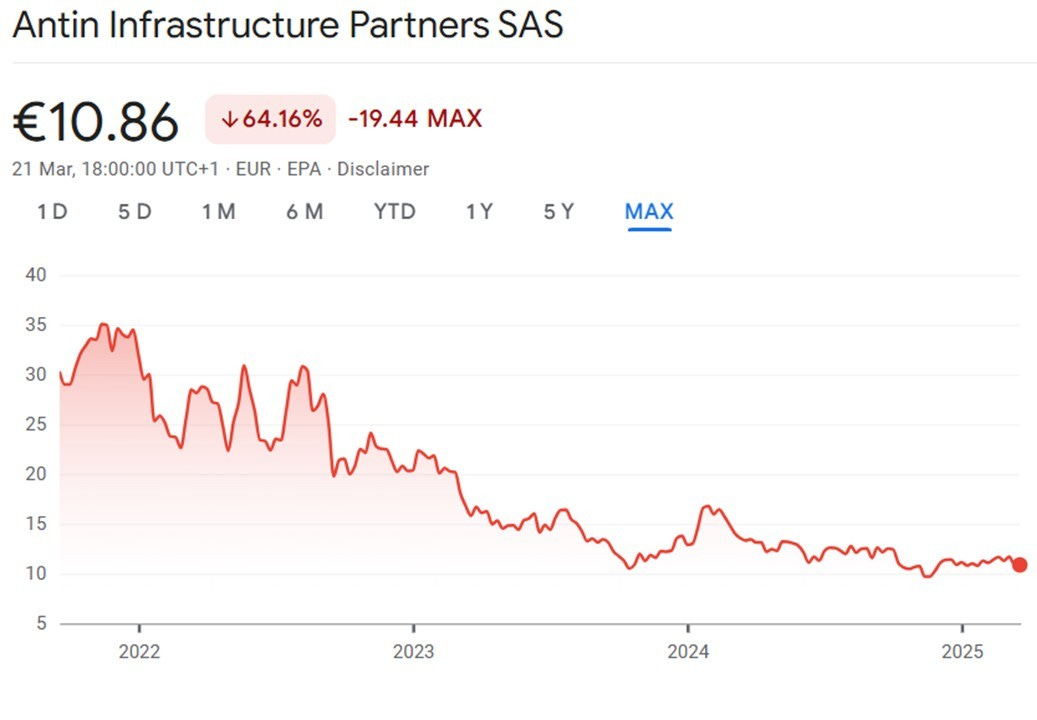Antin Infrastructure Partners ($ANTIN.PA) is a French private equity firm specialising in the energy/environment, transport, digital and social infrastructure sectors in Europe and North America with €33 billion in assets under management.1
Antin was established in 2007 by Alain Rauscher and Mark Crosbie (with a minority stake held by BNP Paribas, later acquired by other senior members) with the idea of applying a differentiated investment approach to the then nascent infrastructure asset class. From its roots in France, it has expanded across Europe and North America (a New York office was opened in 2019) and more recently in Asia (Singapore in 2021 and Seoul in 2023).
Only listed since September 2021, it can be considered a “busted IPO”: from the offering price of €24 (for a €4.1 billion market cap), it initially shot up (+33% on the debut day!) but has then steadily declined to the current ~€11 range (-55% below the IPO price for a €1.9 billion market cap).
With the company at the time fully owned by employees, the IPO consisted of a capital increase for €350 million and €200 million sold by existing shareholders (CEO/Chairman and Vice-Chairman). Following the expiry of the lock-up, in January 2025 the free float has increased to 16% with the first placement of shares since the IPO by a group of current and former partners, none of which had sold at the time of the IPO: other partners, including the CEO, purchased half of the shares sold.2
Today, directors and executive board members control ~68% of the shares, with another 17% hold by other employees:
Alain Rauscher (Co-Founder, CEO & Charmain): 31%
Mark Crosbie (Co-Founder & Vice-Chairman): 17%
Mélanie Biessy (Managing Partner & COO): 7%
Stéphane Ifker (Managing Partner): 6.5%
Angelika Schöeclin (Managing Partner): 6.5%
Private infrastructures markets
Private infrastructure asset managers typically invest in either infrastructure assets (such as power generation, roads or airports) or companies that own and operate infrastructure (such as utility or fibre companies), with varying risk profiles and levels of active management.




